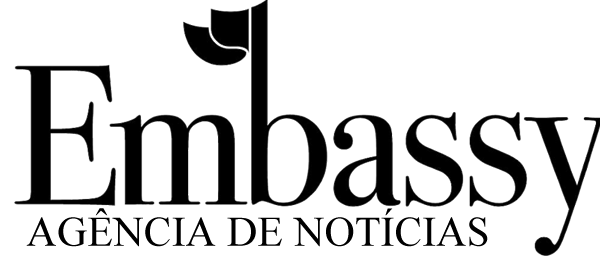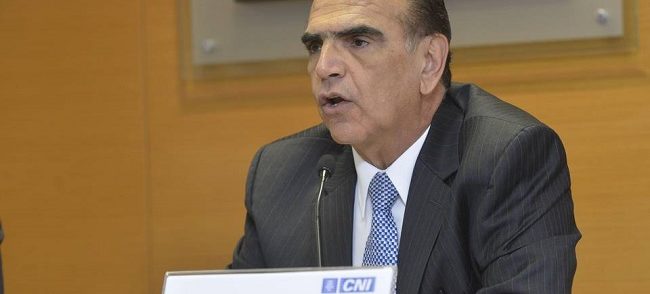Brasília – The Trade Facilitation Agreement Establishing the World Trade Organization (WTO), signed in 2013 in Bali, Indonesia, took effect on Wednesday (22), with the signature of 112 of the 164 WTO members. To enter into force, it was necessary that two thirds of countries ratify the agreement. And the National Confederation of industry (CNI) intensified monitoring in Brazil. The Bali agreement provides for actions to streamline processes and reduce delays in customs and export costs, import and customs transit.
The WTO estimates that when countries make the reforms envisaged in the treaty to cut red tape, the cost of global trade will be reduced by 14.3%, injecting $ 1 trillion in international trade. Therefore, the productive sector expects that Brazil fulfills in full agreement and as soon as possible.
“The agreement will leverage and accelerate reforms in Brazil that are necessary to give more competitiveness. For this, we have created a mechanism, Facilitrômetro to give clarity to the commitments that are being implemented and that are stopped, “the Industrial Development Director of CNI, Carlos Eduardo Abijaodi.
Facilitrômetro – É uma ferramenta, em forma de infográfico, desenvolvida pela CNI para mostrar de forma fácil e acessível se o Brasil está cumprindo os artigos do Acordo de Facilitação de Comércio da OMC. A infografia será atualizada frequentemente para que o setor privado possa acompanhar se o governo brasileiro está empenhado em reduzir a burocracia e o custo no comércio exterior. O infográfico está dividido em quatro cores. Verde, para as ações que já estão prontas. Laranja, para o que está em andamento. Amarelo, para os casos em que o Brasil notificou à OMC de que havia cumprido, mas a indústria entende que é necessário melhorar. E, por fim, vermelho, para as medidas que ainda não saíram do papel. Confira:
Early solution queries – Um ponto importante do acordo, com benefícios imediatos para a indústria brasileira, trata da solução antecipada de consultas. Trata-se de um mecanismo que permite a empresa conhecer, antes de embarcar a mercadoria, em qual categoria seu produto se encaixa e quais as regras de origem para aquele determinado bem. No Brasil, os exportadores e importadores ainda não têm essa opção, e quando as consultas são feitas, os órgãos não têm prazo definido para respondê-las.
“The regulation of the law on administrative consultation process avoid delays, unnecessary penalties and procedures that only borne by the exporter. still give predictability and legal certainty “, explains Abijaodi.
Bureaucracy – The Single Portal of Foreign Trade is one of the points in the agreement that is going well. The expectation is that the Portal will be ready in 2018 and work to integrate all the actors of foreign trade, including the 22 consenting agencies such as the IRS, Department of Foreign Trade, Federal Policy and National Health Surveillance Agency.
In addition, Brazil also undertook to harmonize data requirements and documents of foreign trade processes to reduce bureaucracy. Currently, according to a survey of the CNI, the same document is charged by 17 different agencies in the country.
“It is important to ensure the resources for this facilitation tool to start functioning fully on schedule. We hope that the entry into force of the Agreement confirm the government’s commitment to the reforms needed for faster trade and lower cost, “said the Industrial Development Director of CNI, Carlos Abijaodi.
What is the agreement of trade facilitation WTO? The Bali Agreement was the first agreement involving all members of the World Trade Organization since its creation in 1995. He was signed during the WTO Ministerial Conference held in Bali, Indonesia, in December 2013, with great support Brazilian productive sector.
The Trade Facilitation Agreement modernize the customs administration, simplifying foreign trade procedures and establishes commitments such as the Single Portal of Foreign Trade and the Authorized Economic Operator (OAS), which will facilitate and speed up the clearance of goods.
That the agreement is important – O tratado facilita o movimento e o despacho das mercadorias, torna o comércio mais transparente e reduz os procedimentos pouco eficientes. Um de seus artigos, por exemplo, trata de taxas e encargos relacionados à importação ou exportação. O Brasil comunicou à OMC que esse ponto já foi superado.
No entanto, a Indústria avalia que falta padronização na cobrança e na coleta das taxas. Para facilitar o comércio, é necessário implementar sistema de coleta única na arrecadação de impostos e taxas. Além disso, essas tarifas devem ser compatíveis com o serviço. No Brasil, há exemplos como escaneamento de contêineres, em que a arrecadação supera – e muito – o valor do serviço prestado.
Em outro ponto, o acordo harmoniza a exigência de documentos. Segundo a OMC, em uma operação aduaneira média dentre seus membros, envolvem-se de 20 a 30 partes diferentes, 40 documentos, 200 elementos de dados (30 dos quais são repetidos pelo menos 30 vezes) e a necessidade de redigitar, pelo menos uma vez, entre 60 e 70 por cento de todos os dados.
(*) With the CNI information






